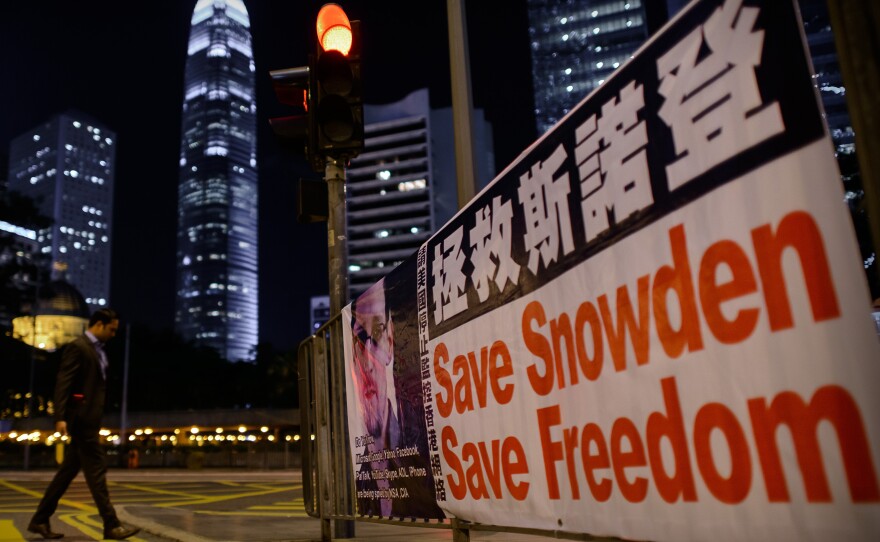
Now that Edward Snowden is an accused spy in the U.S., how will federal prosecutors get him extradited from the Chinese territory of Hong Kong, where he's reportedly in hiding?
A day after the Department of Justice filed a criminal complaint against the former NSA contractor who leaked classified information on U.S. surveillance programs to the media, charging him with espionage, theft and conversion of government property, The Guardian newspaper says Hong Kong legislators are asking mainland China to block his extradition.
Snowden, 29, surfaced in Hong Kong last week admitting that he was the source of leaks that led to a series of Guardian exposes on the National Security Agency's data-collection programs. Since then, he has become something of a cause célebre in the Asian hub.
The U.S. and semiautonomous Hong Kong have an extradition treaty that dates to 1998.
U.S. government sources tell NPR's Carrie Johnson that there's "every indication" that Snowden is still in Hong Kong, but that authorities "want to make sure every I is dotted and T is crossed" before making any move to bring him the United States.
Carrie notes that although Snowden has been charged in a criminal complaint, extradition proceedings can't begin until he's formally indicted by a U.S. grand jury. "Depending on how Hong Kong and China play this, it could take a while," she says.
The Guardian quotes Hong Kong barrister Hectar Pub as saying the extradition could take three to five years because the U.S.-Hong Kong extradition treaty doesn't specifically cover espionage; instead, authorities there would have to come up with an equivalent charge to go forward.
And until Hong Kong authorities actually charge Snowden, he's free to leave the city.
The newspaper says:
"Snowden could claim political asylum in Hong Kong, arguing he would face torture back home. Article six of the treaty states extradition should be refused for 'an offence of a political character.'
" 'The unfairness of his trial at home and his likely treatment in custody' were important factors to consider when assessing Snowden's chances of claiming political immunity from extradition, said [Simon] Young [a law professor at the University of Hong Kong].
"Should a Hong Kong court eventually call for Snowden's extradition, Hong Kong's leader and China could still veto the decision on national security or defence grounds."
Copyright 2013 NPR. To see more, visit www.npr.org.






